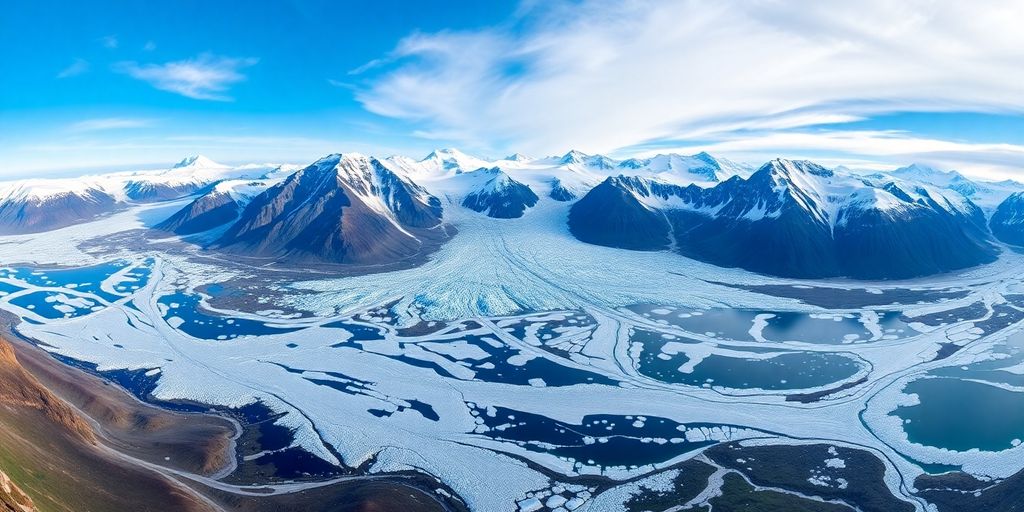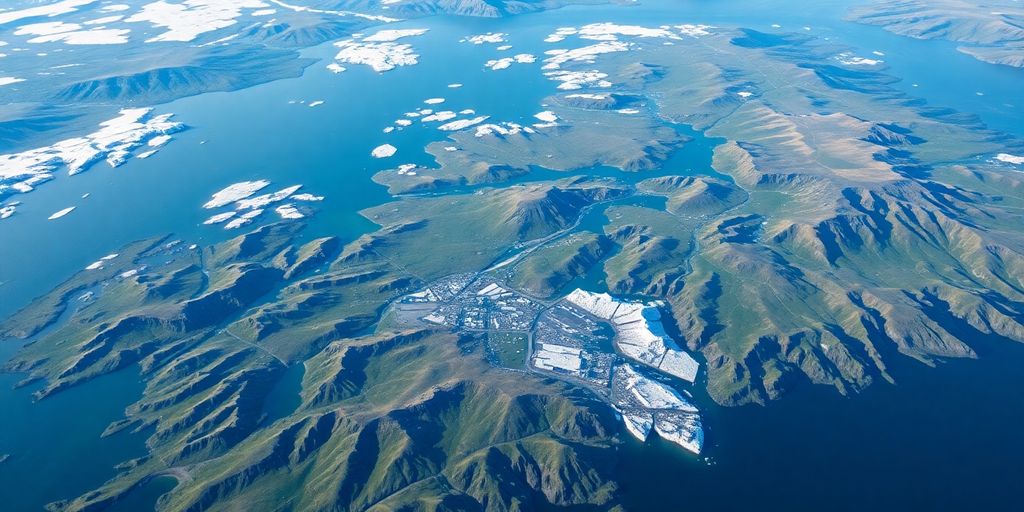Why Trump Can’t Buy Greenland

Donald Trump has expressed a desire to expand the United States to include Greenland, raising eyebrows and questions about the implications of such a move. This article explores the complexities surrounding Trump’s interest in Greenland, including its historical context, natural resources, and the sentiments of the Greenlandic people.
Key Takeaways
- Trump’s interest in Greenland is not about military security.
- Greenland has significant natural resources that Trump may want to exploit.
- The constitutional relationship between Denmark and Greenland complicates any potential sale.
- Greenlandic nationalism is strong, with many wanting independence from Denmark.
- The idea of buying Greenland is largely seen as absurd and impractical.
The Context of Trump’s Interest
When Donald Trump came into office, he made headlines with his interest in acquiring Greenland. This wasn’t just a passing comment; it was a serious suggestion that raised many questions. Why would a sitting president want to buy a territory that is not for sale?
Military Security Is Not The Issue
First off, it’s important to clarify that Trump’s interest in Greenland isn’t about military security. While Greenland is strategically located for missile defense and early warning systems against potential threats, the U.S. already has access to the territory. The Pituffik Space Base, formerly known as Thule Air Base, is a prime example of this access. If the U.S. wanted to expand its military presence, it could simply ask the Danish and Greenlandic governments for permission.
Natural Resources: The Real Motivation?
So, what’s really driving Trump’s interest? It seems likely that he has discovered the natural resources in Greenland. The island is rich in minerals and other resources, and gaining control over these could allow Trump to dictate terms and reap financial benefits. This desire for control might also be mixed with a sense of narcissistic vengeance. After all, when Trump first suggested buying Greenland in 2019, the Danish Prime Minister dismissed the idea as absurd, which likely stung his ego.
The Constitutional Connection
Now, let’s talk about why this idea is fundamentally flawed. Denmark and Greenland are connected constitutionally, but they are not the same. Denmark used to be a colonial power, and back then, selling a colony was possible. However, in today’s world, Denmark is more like a federation with Greenland and the Faroe Islands. Greenland has a significant degree of independence and can make many of its own decisions.
- Key Points About Greenland’s Independence:
- Greenland has its own government and can manage most of its affairs.
- Denmark still handles national security, but many other areas are self-governed.
- The Greenlandic people see their land as theirs, not something Denmark can sell.
National Sentiment in Greenland
Another crucial factor is the growing nationalistic sentiment in Greenland. Many Greenlanders are pushing for complete independence from Denmark. There’s even talk of a referendum on this issue in the near future. However, with a population of only about 57,000 spread over a vast area, the challenges of running an independent country are significant.
Interestingly, while some Greenlanders are curious about the U.S. interest in their land, almost no one wants to become part of the United States. Joining the U.S. would likely mean giving up their dreams of independence, which is not something they are willing to do.
The Absurdity of the Proposal
In summary, Trump’s idea of buying Greenland is not just impractical; it’s seen as absurd. The Greenlanders want to maintain their independence and make their own choices about their future. The notion that one country can buy another is outdated and unrealistic.
The Bigger Picture
This situation also sends a troubling message to the world. With ongoing conflicts and uncertainties globally, the last thing the Western alliance needs is division. Trump’s imperialistic tone could be interpreted as a signal to countries like China and Russia that the U.S. is open to aggressive territorial ambitions.
Conclusion
In conclusion, Trump’s desire to buy Greenland is a complex issue rooted in historical, political, and social factors. The chances of him persuading the Greenlanders to abandon their aspirations for independence are slim to none. As this story unfolds, it will be interesting to see how far Trump is willing to take this idea and what it means for international relations moving forward.







Responses